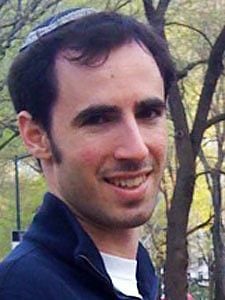In the space of eight verses in Parshat Pinchas, God and Moses arrange a succession plan for Israel’s faithful shepherd. The passage, together with an accumulation of rabbinical commentary thereon, provides a window into what kind of person the Torah sees as fit to lead the Jewish people.
According to the Midrash, Moses hopes that God will appoint his son as his successor, arguing that it’s only logical for the position to be inherited within his family.[1] God replies that Moses’s son is not worthy, whereas Joshua, Moses’s student and tireless assistant in the service of God and the people, certainly is. This response emphasizes that leadership of the Jewish community should not be hereditary; rather it must be based on demonstrated merit.
In this exchange, Moses calls God elohei haruchot l’chol basar, God of the spirits of all flesh.[2] Rashi remarks that this terminology points to what Moses was really asking: “Master of the universe, the character of each person is revealed to you, and no two are alike. Appoint over them a leader who will tolerate each person according to his individual character.”[3] In the text, God responds to Moses: “Take for yourself Joshua bin Nun, a man with spirit (ruach) in him”[4]—which Rashi expounds as: “someone able to deal with the character (ruach) of each person.”[5] Thus, the passage suggests a second leadership quality necessary to be a steward of the Jewish tradition: one must have the ability to understand and identify with the diverse range of needs and dreams of all individuals in the community.
We have much to learn from these two leadership principles within our own Jewish and social justice communities.
Though positions of communal leadership are not hereditary today,[6] it is clear that roles are not always assigned purely on the basis of merit. For example, a study published last year revealed that among major Jewish organizations—in which 75 percent of the workforce is composed of women—less than one in six is led by a woman.[7] Those male presidents and executive directors certainly were not born into their leadership positions, but they have inherited a system that continues to grant them advantageous status based on criteria other than merit. We might begin to address the imbalance by examining whether our institutions maintain any formal, or informal, barriers to female leadership.
Furthermore, the American Jewish community has long been organized by centralized leadership bodies (Federations, synagogues) that encourage unity. With today’s rising demand for the diversification of Jewish engagement—illustrated by the growth of independent prayer communities and the flourishing of innovative and niche expressions of Jewish life such as Jewish farming programs and Jewish international development programs—the time is ripe for promoting leaders who can best engage the different ruach of each individual. It is imperative that we support the development of an increasingly decentralized leadership body that can more effectively serve and inspire individuals based on their diverse needs.
Part of the challenge of choosing Jewish leadership based on the model outlined in this parshah lies in balancing these two qualities—ensuring that the most talented people, as well as those most able to address the community’s unique needs—become the catalysts of our community’s pursuit of holiness and justice in the world. Without the advantage of God on our hiring committees, we need to make sure we have structures in place that would allow these leaders to rise.
A midrash suggests that at the moment when Moses passed his authority on to Joshua, the elders exclaimed: “woe for the shame, woe for the disgrace.”[8] Rabbi Yizhak of Velozhin claims that the elders were not expressing disappointment in Joshua’s promotion; rather, that upon realizing that Joshua had reached the pinnacle of leadership—not through inheritance or favoritism but through toil and dedication alone—the elders comprehended that they too had had the potential to become great leaders and were now ashamed at not having done so.[9] While we ponder the lessons of leadership and challenge our existing communal structures, we should bear this in mind: that the right people to lead might be ourselves.
[1] Midrash Tanhuma, Pinchas 11
[2] Bamidbar 27:16
[3] Rashi on Bamidbar 27:16
[4] Bamidbar 27:18 Ruach, spirit, is the singular form of the word ruchot, spirits, which Moses uses to address God.
[5] Rashi on Bamidbar 27:18
[6] Hasidic dynasties remain an exception, as they continue to assign leadership positions explicitly on the basis of lineage.
[7] Eisner, J. and D., Ferst. “Jewish Women Lag Behind Men in Promotion and Pay.” The Forward, 4 November 2009, http://www.forward.com/articles/118323/
[8] Talmud Bavli, Bava Batra 71a
[9] Cited in Leibowitz, Yeshayahu, Sheva Shanim shel Sichot al Parshat Hashavua, p. 735

